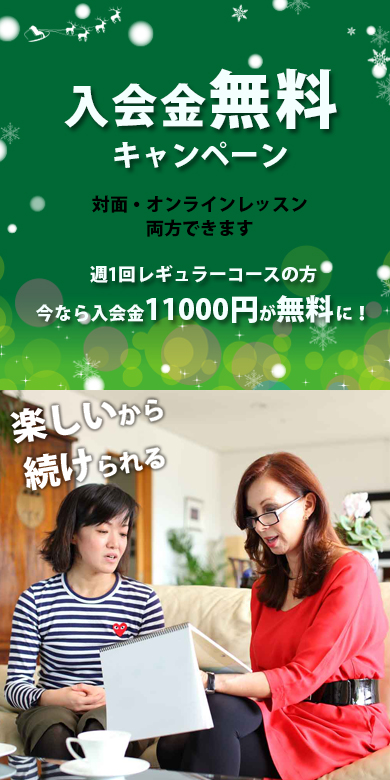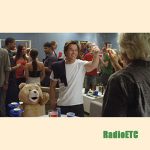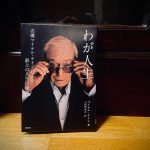Tag Archives: ENCHANTED
I have never と I have not の意味の違い

I have never と I have not の意味の違い (4分)
 映画「魔法にかけられて」を見ながら、ETCのダイアン先生のレッスンを受けています。モーガンは六歳、両親が離婚したため、父親と二人暮し。母親と一緒に買物にいった経験がありません。
映画「魔法にかけられて」を見ながら、ETCのダイアン先生のレッスンを受けています。モーガンは六歳、両親が離婚したため、父親と二人暮し。母親と一緒に買物にいった経験がありません。
I’ve never been shopping with my mother.
このnever をnotに差し替えて
I have not been shopping with my mother
ということはできるのでしょうか。ETCのダイアン先生に質問してみました
■出演
・ダイアン先生(ETCマンツーマン英会話)
■聞き手
・青樹洋文
◆関連リンク
魔法にかけられて
◆番組の感想はメールフォームから。
In this case, she is talking about experience. I have not been shopping means… yeah the meaning is different. “I have never been shopping” is experience. So she said she never went shopping with her mother. Morgan too. I think the parents are divorced, right? Divorced or something. So she never went to shopping too. She never had an experience. But if you say, “I haven’t been shopping”, that means you haven’t gone yet to shopping. Soon the past which is not finished yet. So when you use yet or already, we use. We called this 現在完了形.
◆使用楽曲 (BGM)
“Soft” of TON from jamendo
仮定法を”If I were a bird”で覚えない
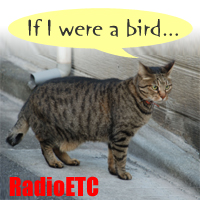
仮定法を”If I were a bird”で覚えない (6分04秒)
 仮定法の例文を一つあげてください、と言われた時、あなたはどんな例文を思い浮かべますか?
仮定法の例文を一つあげてください、と言われた時、あなたはどんな例文を思い浮かべますか?
If I were a bird, I would fly to you.
もしも私が鳥だったら、あなたのもとへと飛んでいくのに
詩のようなとても素敵なフレーズですが、「でも鳥にはなれないから、今はあなたに会いに行けない」という諦めも感じます。仮定法は、「今は違うけど、状況を変えることで、未来が変わってゆく」というとても前向きな事柄を表す時にも使えそうです。仮定法を身近な表現として使うために、もっと良い例文はないでしょうか。ダイアン先生(ETCマンツーマン英会話)が、こんな例文を教えてくれました。
■出演
・ダイアン先生(ETCマンツーマン英会話)
■聞き手
・青樹洋文
◆関連リンク
魔法にかけられて
注意!me too 英語

091127.mp3 (3分28秒)
 me too という表現は、とても子どもっぽい表現で、ビジネスに使うには適さないということを聞いたことがあります。本当でしょうか。
me too という表現は、とても子どもっぽい表現で、ビジネスに使うには適さないということを聞いたことがあります。本当でしょうか。
ダイアン先生(ETCマンツーマン英会話)に質問をしてみました。
■出演
・ダイアン先生(ETCマンツーマン英会話)
■聞き手
・青樹洋文
◆関連リンク
魔法にかけられて
◆番組の感想はメールフォームから。
Morgan says, I’m gonna really miss her.
Robert answers, Me, too. Sweetheart. Me too.
Q: So I’ve heard that to say “me too” sounds very childish or too casual. Is that true?
Yeah, actually it’s true. And like we just discussed, if you… you have to know the first, the formal way of saying something. And the grammatically formal way of saying this is “so am I”. You have to agree. This is agreeing to the sentence before. Morgan, the daughter says. “ I’m really gonna miss her”. The father says, “I will miss her too”. So in the short form when you agree to a sentence, then you say “so am I”. Depending on the verb, we say, “ so do I”, “so can I”. That’s the more formal way or you say the full sentence. “I’m going to miss her too”. We put “too” at the end. So the short form is “me too”.
◆使用楽曲 (BGM)
“Soft” of TON from jamendo
This just won’t do の意味は
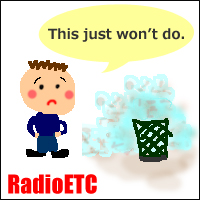
This just won’t do の意味は (2分48秒)
 映画「魔法にかけられて」を見ながら、ETCのダイアン先生のレッスンを受けています。簡単な英単語で話される英文ほど難しいと感じたことはありませんか?あまりにも散らかったままの部屋に気づき、主人公のジゼルはこういいます。
映画「魔法にかけられて」を見ながら、ETCのダイアン先生のレッスンを受けています。簡単な英単語で話される英文ほど難しいと感じたことはありませんか?あまりにも散らかったままの部屋に気づき、主人公のジゼルはこういいます。
This just won’t do.
さて、これはどんな意味なのでしょうか。
ダイアン先生(ETCマンツーマン英会話)に質問をしてみました。
■出演
・ダイアン先生(ETCマンツーマン英会話)
■聞き手
・青樹洋文
◆関連リンク
魔法にかけられて
◆番組の感想はメールフォームから。
Giselle says, “this just won’t do”.
For example, “that will do “ or “this will do” is the phrase which we use meaning that it’s OK. It’s OK or this is fine. “This won’t do” It’s negative, so this is not good. This is not a good situation.
Can I use this phrase often?
Ah, yeah, of course people use it usually. Sometimes parents use it to children. “This will do” in Japanese means usually like “ちょうどいい” or “これでいい”. This is just negative case. So this is not good. Some example, is for example… When we say “that will do”, that means in Japanese “それで結構です”. But sometimes when the parents tell to the children “that’s enough” or “please stop”, then they say “that will do” in an angry, of course in the angry manner. “That will do”. “That will do” means “you have to stop now”, “finish!”. When we say “that will never do”, then you say in Japanese it means “そりゃぜったいだめだ”, “it doesn’t work out”.
Of course, she uses this, meaning she is in the situation and looking at the room. So she thinks, “oh, this is no good. I have to clean the room”. “This won’t do, it’s not possible.
◆使用楽曲 (BGM)
“Soft” of TON from jamendo

